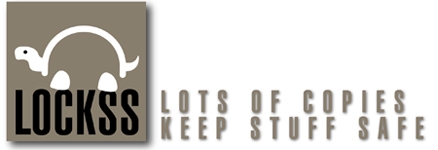- Focus and Scope
- Section Policies
- Peer Review Process
- Publication Frequency
- Open Access Policy
- Archiving
Focus and Scope
discuss the phenomenon of corruption and anti-corruption with the scope of specific research / study topics
Corruption Watch Review is an international journal published by the Center For National Constitution and Legislation Studies, Universitas Islam Negeri Syarif Hidayatullah Jakarta, Indonesia. The focus is to provide readers with a better understanding of phenomenon of corruption, anti-corruption and present developments through the publication of articles, research reports, and book reviews. Corruption Watch Review specializes in discuss the phenomenon of corruption and anti-corruption, and is intended to communicate original researches and current issues on the subject. This journal warmly welcomes contributions from scholars of related disciplines.
Corruption Watch Review discuss the phenomenon of corruption and anti-corruption with the scope of specific research / study topics, including the following: 1) Handling corruption cases, Money Laundering, gratification, corporate criminal, asset recovery, and examination of judicial decisions; 2) Corruption in the executive, legislative and judiciary, both at central and regional levels; 3) Corruption in the natural resources, infrastructure, food, health, education and other public services sectors; 4) Issues of transparency and public participation; 5) Eradication of corruption based on religion, culture and local wisdom; 6) Corruption reporting in mass media and social media; 7) Anti-corruption education and campaigns; 8) The organization, performance and work of the KPK; 9)Comparison of handling corruption between institutions and between countries; 10) The impact of corruption, ranging from economic, social, political, bureaucratic-governance, legal, psychological, cultural and other aspects; 11) The use of technology in combating corruption; and 12) Historical aspects and the development of corruption and anti-corruption movements.
Section Policies
Articles
Peer Review Process
Manuscripts submitted to Corruption Watch Review will undergo a selection and assessment process by the Board of Editors to ensure their accordance with the writing guideline, focus, and scope, and that they are of excellent academic quality. The manuscripts will be reviewed using the double blind peer review method in which case neither authors nor reviewers know each other’s identities.
Desk Review. At the desk review stage, manuscripts will be examined to ensure that they have met the writing guideline, focus, and scope with excellent academic quality. If they do not meet the conditions, the author will be given the opportunity to revise their manuscript according to the given criteria. However, there is also the possibility that the manuscript will be directly rejected.
Peer review. When the manuscript has passed the desk review stage, it will then be delivered to two reviewers who are experts in the field of the submitted manuscript. The review process will be done within 3 weeks. Manuscripts that did not successfully pass the desk review process will not proceed to this stage.
Reviewer’s decision. The reviewers will provide the following recommendations:
- Accepted; means that the manuscript is acceptable for publication
- Accepted with minor revisions; means that the manuscript is acceptable for publication once it is revised in response to the reviewers’ concerns
- Accepted with major revisions; means that substantive inadequacies in the manuscript, such as data analysis, the main theory used, and rewriting of paragraphs, need to be revised
- Rejected; means that the manuscript is not acceptable for publication or the given reviews relate to very basic issues
The reviewer’s decision will be considered by the Board of Editors to determine the ensuing process of the manuscript.
Revision Stage. Once the manuscript has been received with notations of minor or major revisions, it will be returned to the author with a review summary form. For manuscripts accepted with major revisions, authors are allotted 3 weeks to revise. Whereas for manuscripts accepted with minor revisions, 1 week is allotted for revision. When returning the revised manuscript, the author is required to fill in and attach the review summary form. Â
Final decision. At this stage, the manuscript will be re-evaluated by the Board of Editors to ensure that the author has revised in response to the reviewers’ concerns. In this final decision, the manuscript may still be rejected if the author did not seriously conduct the revisions necessary.
Proofread. Once the manuscript has been deemed acceptable by the Board of Editors, it will undergo a proofreading process to maintain linguistic quality.
Publication confirmation. At this stage, the final layout of the manuscript will be resent to the author to ensure that the content is in accordance with the author’s writing. At this stage, the author may revise any typographical error found in the final manuscript. Once confirmation from the author is given, the Editorial Secretary will process the manuscript for online publication on the website as well as print publication.
Publication Frequency
Corruption Watch Review is Published two times a years (April and September).
Open Access Policy
This journal provides immediate open access to its content on the principle that making research freely available to the public supports a greater global exchange of knowledge.
This journal is open access journal which means that all content is freely available without charge to users or / institution. Users are allowed to read, download, copy, distribute, print, search, or link to full text articles in this journal without asking prior permission from the publisher or author. This is in accordance with Budapest Open Access Initiative
 Â
 
Archiving


